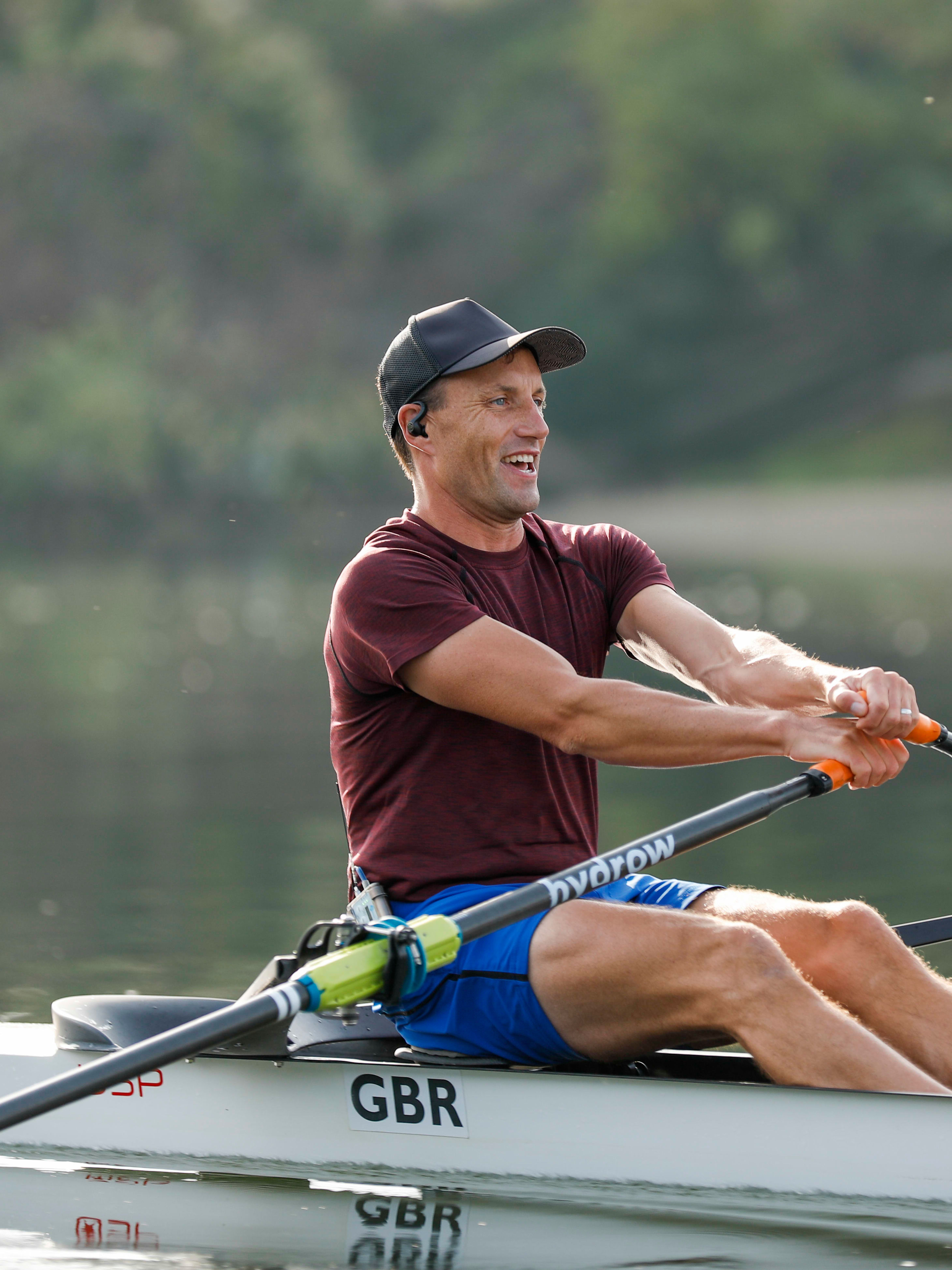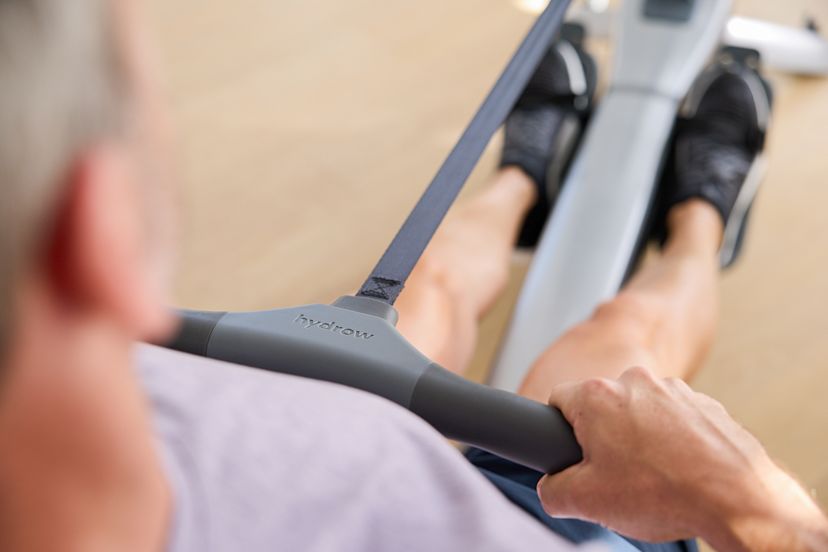10 Rowing Drills You Can Perform on Your Indoor Rower (and Their Benefits!)
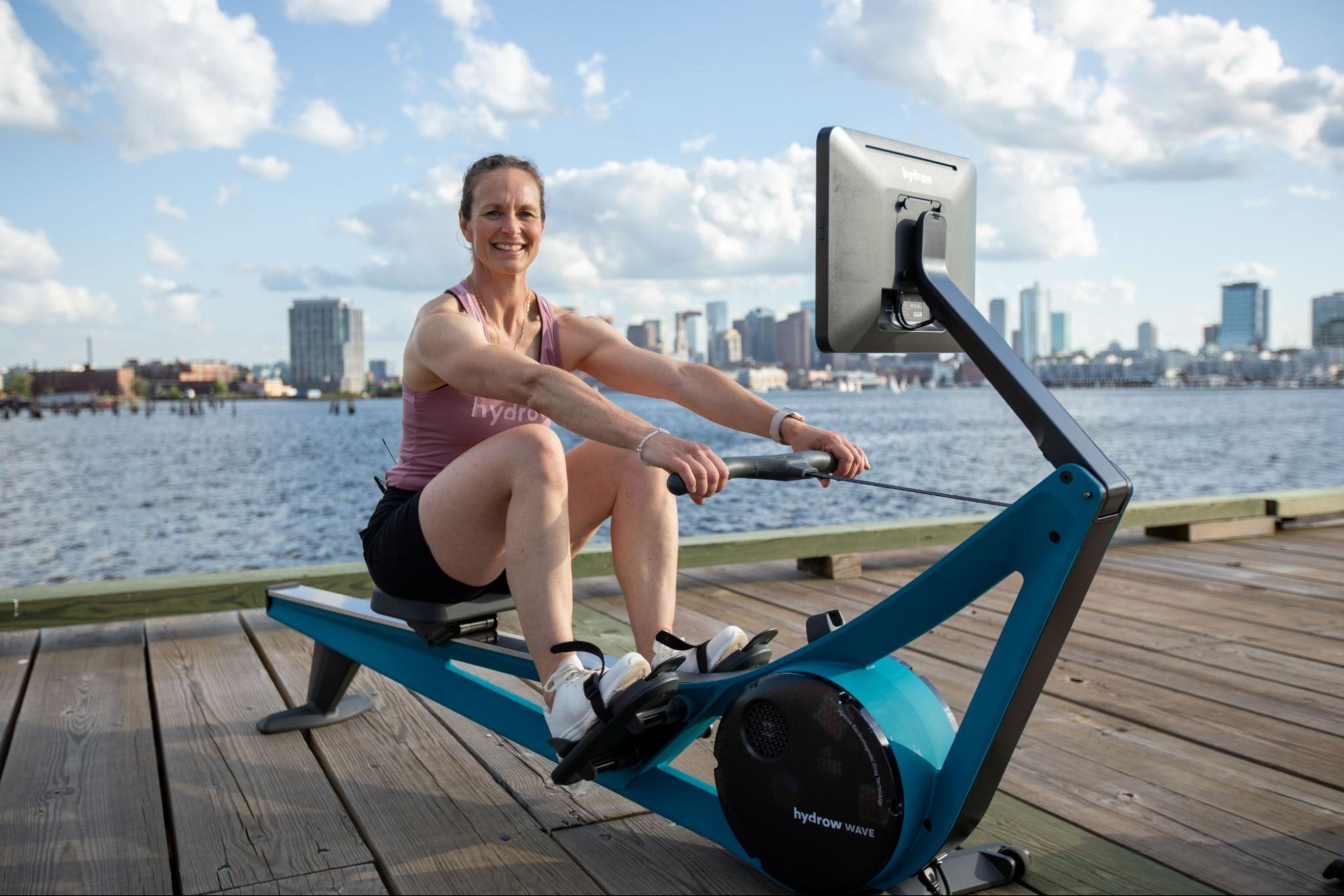
As you’ve browsed your library of different types of rowing workouts, you’ve likely encountered various types of rowing drills. But what exactly are rowing drills, and why are they worth incorporating into your fitness routine?
In this blog, we’ll explore:
Let’s dive in!
What are rowing drills?
Rowing drills are targeted exercises that break down different phases of the rowing stroke or focus on specific aspects of rowing, such as technique, power, or rhythm. By incorporating these drills into your routine, you can improve your stroke efficiency, strengthen key muscle groups, and enhance overall performance.
The benefits of rowing drills
The benefits of rowing drills include better technique, increased power and endurance, injury prevention, and a more enjoyable and varied workout. Adding variety to your rowing sessions with these targeted drills can also help improve your technique, power, and stamina, while also keeping the workout engaging.
10 rowing drills to add to your indoor rower routine
Want to know where to start? Here are 10 rowing drills you can perform on your rowing machine, along with step-by-step instructions and key benefits of each, including:
Legs-only drill
Arms- and body-only drill
Reverse pick drill
Pause drill
1/4 slide rate increases
Stroke rate climb
Single-leg rowing drill
Feet-out drill
Elbow cradle drill
Constant-rate power drill
1. Legs-only drill
Because your legs provide most of your power during the rowing stroke, the legs-only drill is key to isolate the leg drive and understand how much power your lower body can generate.
The benefits of the legs-only drill
Legs-only drills teach rowers to initiate the stroke with their legs and prevent over-reliance on the upper body.
How to perform the legs-only drill
Start in the Catch position and push with your legs while keeping your arms straight and body leaning slightly forward. Perform 15 to 20 strokes using only your legs before resuming regular rowing.
2. Arms- and body-only drill
This drill isolates the upper body to emphasize the second half of the rowing stroke, which includes the body swing and arm pull.
The benefits of the arms- and body-only drill
This drill ensures you are using the body and arms toward the end of the stroke, improves posture and technique during the Drive phase, and enhances coordination between the arms and body.
How to perform the arms- and body-only drill
Begin with straight legs, arms extended, and body leaning slightly forward. Begin the movement by swinging your body back before pulling the handle toward your chest with your arms. Perform 15 to 20 strokes like this before going back to regular rowing.
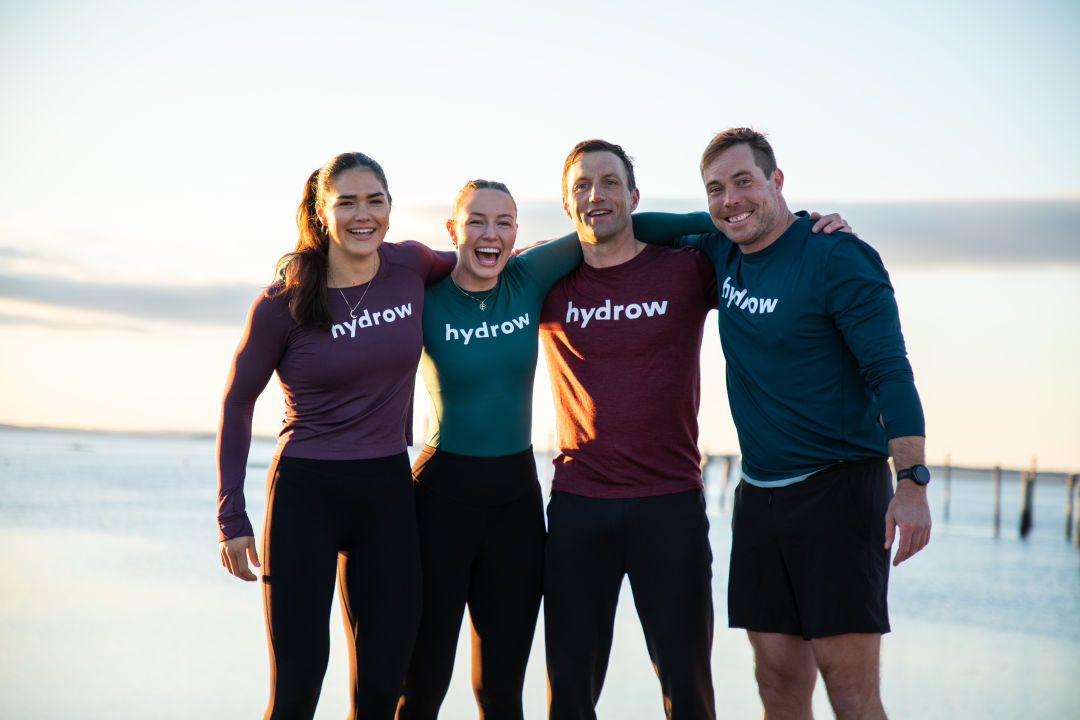
Explore Hydrow’s library of 5,000+ rowing, circuit training, yoga, Pilates, and mobility workouts.
3. Reverse pick drill
This drill breaks down the rowing stroke into three segments—the arms, body, and legs—helping rowers better understand each part of the stroke.
The benefits of the reverse pick drill
Pick drills help rowers build a strong foundational technique, reduce technical flaws, and improve efficiency.
How to perform the reverse pick drill
Start by rowing only with your arms for 10 to 15 strokes, then increase the stroke length by adding the body swing for a further 10 to 15 strokes. Finally, add the leg drive for the same number of strokes. This methodical approach helps reinforce the correct sequencing of movements.
4. Pause drill
The pause drill is excellent for rowers looking to refine their technique and eliminate common flaws in the Recovery section of the stroke.
The benefits of the pause drill
This drill ensures proper sequencing during the Recovery phase, improves body control, puts you in the optimal position to conduct a strong efficient stroke, and promotes smoother transitions between phases of the stroke.
How to perform the pause drill
While rowing at a steady pace, pause for 2–3 seconds during the recovery at these three positions:
The Finish: When the handle is at your body.
Hands Away: Just after the Finish when your arms are straight.
Body Over: Just after the hands-away position when your arms are straight, with your body leaning forward and your legs still flat.
5. 1/4 slide rate increases
As you improve, you will eventually want to be able to row efficiently and powerfully at high stroke rates. This drill is a great way to achieve just that!
The benefits of 1/4 slide rate increases
This drill increases coordination around the back end of the stroke and improves your ability to move the handle quickly and smoothly around the Finish. These efficiencies and boosted coordination will help you sustain higher stroke rates when you row.
How to perform 1/4 slide rate increases
Reduce the length of your stroke so that you are only using a few inches of the slide with your legs. Then, row 30 strokes starting at lower stroke rates (24–26), increasing your rate every five strokes. The aim is to row as high a stroke rate as you can at the end of 30 strokes.
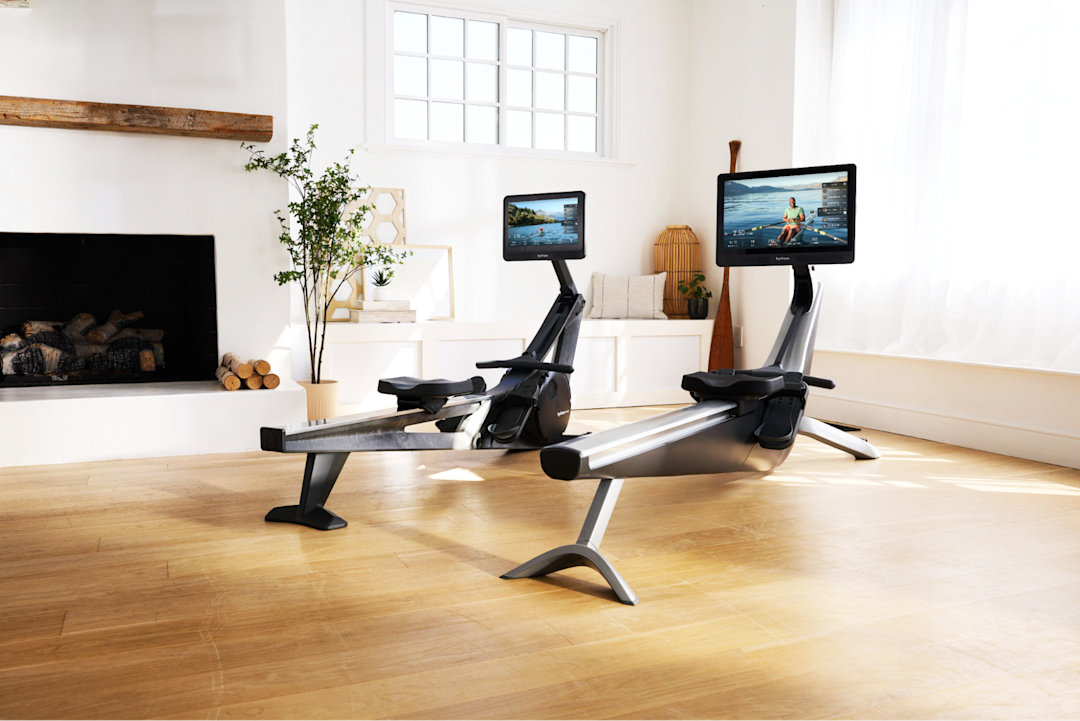
Wondering if a Hydrow rowing machine is right for you? Get answers in our FAQ guide.
6. Stroke rate climb
This drill helps rowers get comfortable with different stroke rates and discover which rates are challenging, making it easier to maintain control during a challenging workout.
The benefits of the stroke rate climb drill
This drill enhances stroke rate control, builds familiarity with pacing, teaches rowers to maintain power at higher cadences, and challenges rowers to maintain control and technique at both the very low and very high stroke rates.
How to perform the stroke rate climb drill
Start rowing at a low stroke rate (18–20 SPM), then increase the rate by 2 SPM every 30 seconds until you reach as high a rate as you can maintain.
7. Single-leg rowing drill
The single-leg drill helps identify imbalances between your legs, which can cause uneven power distribution.
The benefits of the single-leg rowing drill
This drill identifies and corrects strength imbalances, improves balance and stability, and strengthens individual leg muscles.
How to perform the single-leg rowing drill
Unstrap one foot and place it on the ground. Row using the other leg, keeping your technique consistent. Switch legs after 10 to 15 strokes.
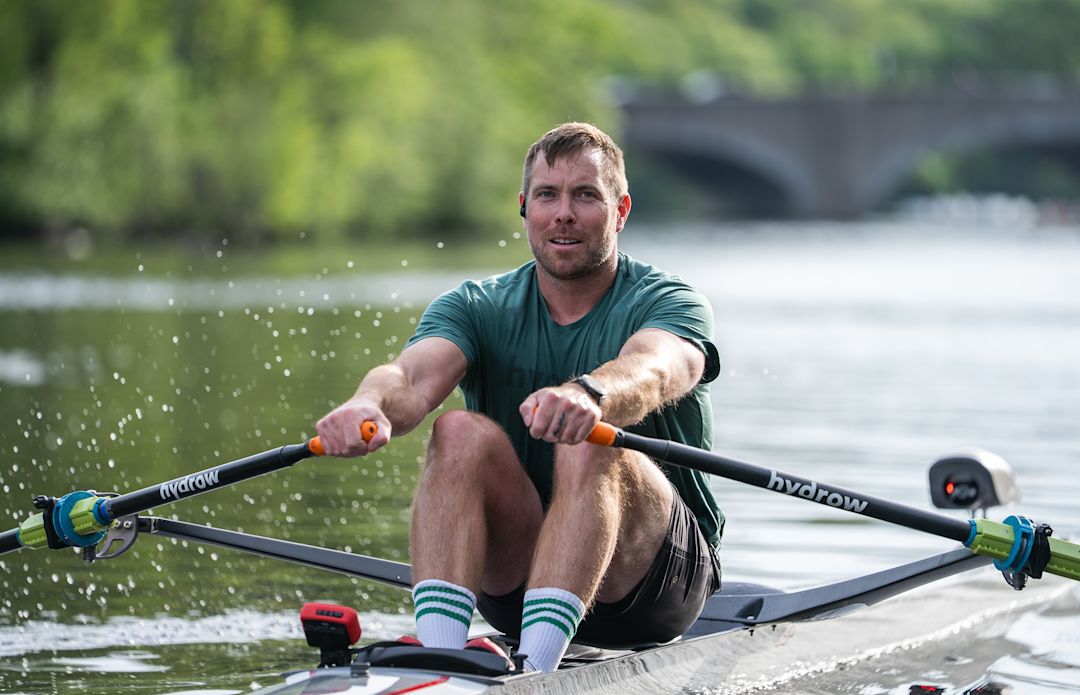
Low-impact, high reward.
Build lasting strength on a rower designed to protect your joints.
8. Feet-out drill
This drill is designed to improve stability and posture by removing the support provided by your foot straps, forcing you to focus on balance and body control. This is an awesome drill to help dial in how far to lean back at the Finish but there is a chance you could fall off the back of your rower if you’re not careful! Reduce your risk by taking your first few strokes very gently until you feel your balance.
The benefits of the feet-out drill
This drill helps define the furthest point you should lean back to at the Finish, helps you keep your core engaged throughout the whole stroke, and promotes good lower back posture at the finish.
How to perform the feet-out drill
Remove the straps from your feet. Alternatively (and more safely!), you can loosen them so they can still catch you if you lean too far back. Next, gently row normal, full-length strokes and experiment with how far you can lean back at the Finish before your feet come away from the floorboards. This is the limit of where you should row.
9. Elbow cradle drill
This is a unique and fun drill you don’t see too often, but it’s a great one to eliminate one of the most common rowing mistakes: bent-arm rowing, in which rowers start the stroke by slightly bending their arms, reducing the power and efficiency of their strokes. This drill eliminates this by putting the handle in your elbows.
Another warning here: Be careful you have full control of the handle at all times, as letting go at the wrong time can result in damaging your rower. You’ve been warned!
The benefits of the elbow cradle drill
This drill promotes the proper Drive sequence starting the stroke with your legs, resulting in more efficient and powerful rowing.
How to perform the elbow cradle drill
Very carefully place the handle in the creases of your elbow as you bend your arms upwards to secure it. Then, row regular strokes without using your arms. As you get the feeling of starting the stroke with your legs, drip the handle in your hands and try to recreate the same feeling in your legs.
10. Constant-rate power drill
We’ll end with a great drill to help you pull apart one of the common misconceptions newer rowers can assume: namely, that stroke rate is the only metric that determines your rowing speed (split /500m). In this drill, you will see how much faster you can row while keeping your stroke rate consistent.
The benefits of the constant-rate power drill
This drill enhances power output and helps you conceptualize that you can change your rowing speed (split) by increasing your effort on the Drive.
How to perform the constant-rate power drill
Start rowing at an easy effort/pace at 24 SPM. Then, for 10–15 strokes, increase the effort only on the Drive—and most importantly, maintain the 24 SPM (yes, to do this you will need to slow the Recovery down!). Notice how your pace (split /500m) goes down.
Explore Hydrow’s library of rowing workouts and drills
Incorporating these 10 rowing drills into your indoor rowing routine can bring significant benefits to your overall performance. From perfecting technique to boosting strength and endurance, these drills offer a well-rounded approach to mastering the rowing stroke. Whether you’re a beginner looking to improve your form or an advanced rower seeking to fine-tune your skills, these drills will keep your workouts challenging and effective. So, the next time you hit the rower, try mixing in a few of these drills and watch your performance soar!
If you’re considering adding a rowing machine to your home, Hydrow brings more than just equipment—it brings total-body results and intelligent training.
Each stroke works 86% of your muscles, delivering an efficient, immersive workout—and with real-time feedback and personalized scores, Hydrow helps you help you row smarter, build strength, and stay motivated. Just 20 minutes a day is all it takes to move with purpose, boost energy, and see results that last.
Hydrow’s workouts are led by world-class and Olympic Athletes and filmed on real water in beautiful locations around the world. Whether you’re rowing or cross-training with yoga, Pilates, strength, mobility, or circuit workouts, you’ll find movement that motivates—and keeps you coming back.
Ready to train smarter? Explore what Hydrow can do for you.
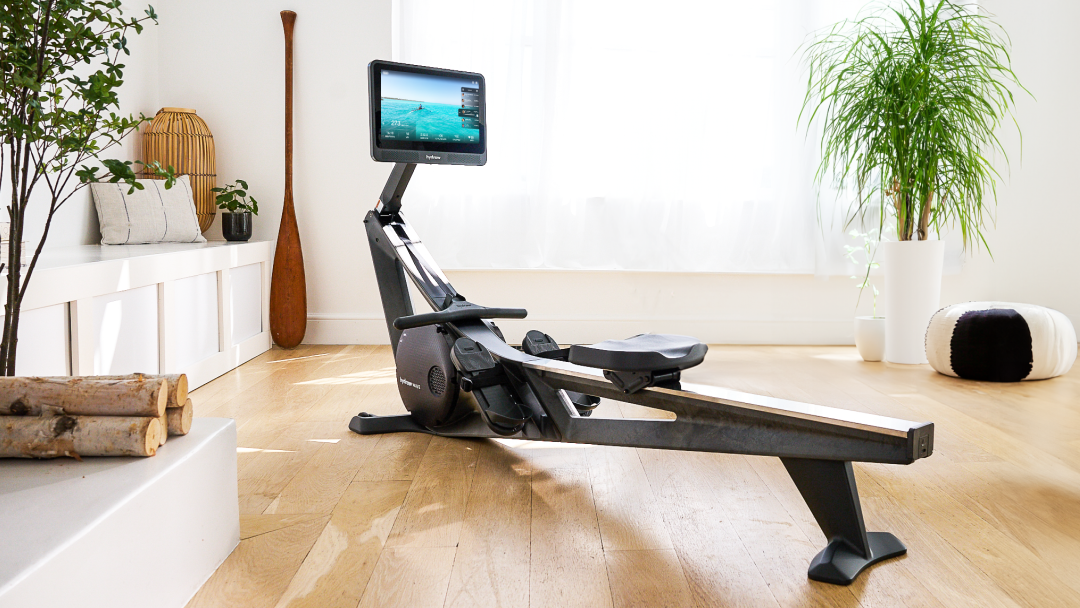
Real strength keeps moving
Learn how working out with Hydrow can help support a fuller, more active life.
